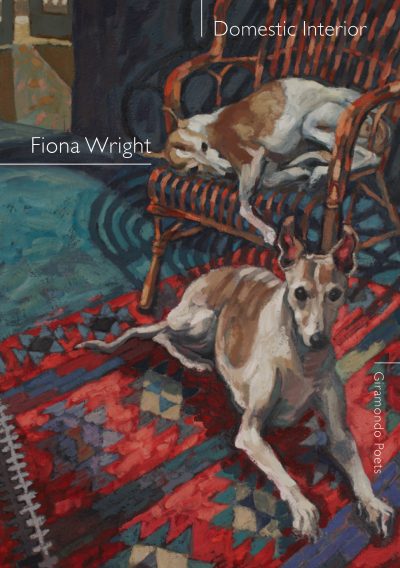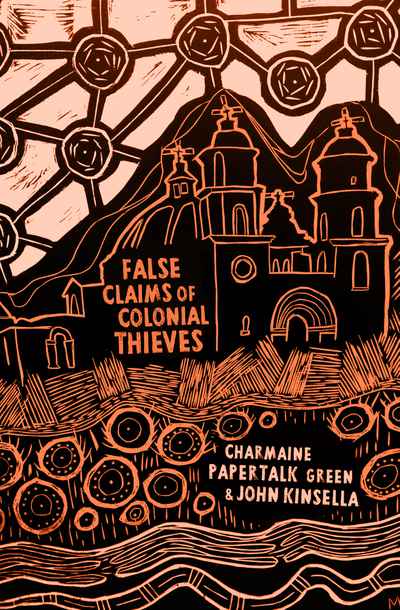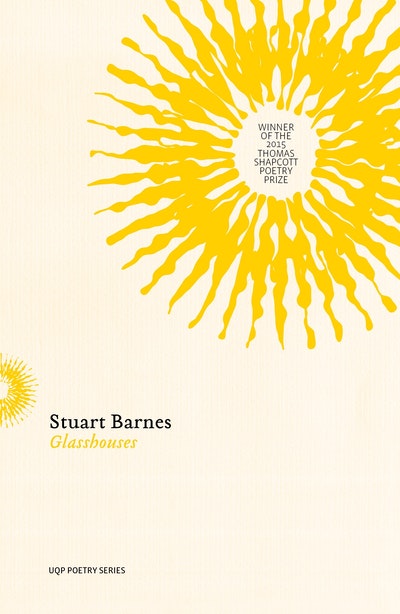 While familiarity with and reverence for Plath’s work enhances the poems of Fig Tree in Winter, this collection is strong enough to stand on its own. Each poem is accessible and beautiful. The words and ideas are clear. The themes are relatable, and the thoughts which get explored are deep. Graue’s collection truly compliments Plath’s legacy.
While familiarity with and reverence for Plath’s work enhances the poems of Fig Tree in Winter, this collection is strong enough to stand on its own. Each poem is accessible and beautiful. The words and ideas are clear. The themes are relatable, and the thoughts which get explored are deep. Graue’s collection truly compliments Plath’s legacy.
Tag: poetry
A review of Domestic Interior by Fiona Wright
 The observations are visceral, coming from within a strong sense of the body. Thinness and its relationship to illness is a continual theme, though very different to the analytical approach of Small Acts of Disappearance. In Domestic Interior the perceptions are simultaneously more delicate and more intense, drawing the reader directly into the deepest heart of pain. The body and its relationship to food informs nearly every perception.
The observations are visceral, coming from within a strong sense of the body. Thinness and its relationship to illness is a continual theme, though very different to the analytical approach of Small Acts of Disappearance. In Domestic Interior the perceptions are simultaneously more delicate and more intense, drawing the reader directly into the deepest heart of pain. The body and its relationship to food informs nearly every perception.
A review of False Claims of Colonial Thieves by Charmaine Papertalk Green and John Kinsella
 Though the poems stand alone and many have been published in literary journals that way, it’s the dialogue itself where the most important meaning happens. Both poets take on similar subjects of dispossession, occupation, the landscape and ecology, exploitation and historical revisionism. Both poets ultimately situate the work as a search for an identity born out of pain, guilt and suffering, and both respond through the others work to create connection and reconciliation.
Though the poems stand alone and many have been published in literary journals that way, it’s the dialogue itself where the most important meaning happens. Both poets take on similar subjects of dispossession, occupation, the landscape and ecology, exploitation and historical revisionism. Both poets ultimately situate the work as a search for an identity born out of pain, guilt and suffering, and both respond through the others work to create connection and reconciliation.
A review of Never Completely Awake by Martina Reisz Newberry
 er poetry is universal in its ability to resonate with her audience. The writing is uncompromising and passionate. Her words are clothed in her experiences: rich and very human. Newberry writes with courage and a refreshing and welcoming honesty. I make no excuses for gushing over her work, it’s deserving of my every gush. You don’t read Martina Reisz Newberry, you experience her.
er poetry is universal in its ability to resonate with her audience. The writing is uncompromising and passionate. Her words are clothed in her experiences: rich and very human. Newberry writes with courage and a refreshing and welcoming honesty. I make no excuses for gushing over her work, it’s deserving of my every gush. You don’t read Martina Reisz Newberry, you experience her.
A review of Glasshouses by Stuart Barnes
 The work resists an easy correspondence. You can’t “translate” it to a simple message or meaning. Instead the poems move between landscapes that feel like they should be familiar, with the unsettling quality of dreams or memory – slightly distorted and nightmarish, but also enticing.
The work resists an easy correspondence. You can’t “translate” it to a simple message or meaning. Instead the poems move between landscapes that feel like they should be familiar, with the unsettling quality of dreams or memory – slightly distorted and nightmarish, but also enticing.
A review of Appalachian Fall by Jennifer Maiden
 Anyone who thinks of poetry as a hermetic art form has not read Jennifer Maiden. A keen and articulate observer of current affairs and trends, Maiden’s work explores a political and sociological landscape through the lens of poetic vision. This analysis takes many forms, often in multi-genred pieces that transcend essay, fiction, biography and poetry. In spite of the mixed literary forms, there is a consistency in characters, themes, and in approaches across Maiden’s oeuvre that makes for an accumulative effect.
Anyone who thinks of poetry as a hermetic art form has not read Jennifer Maiden. A keen and articulate observer of current affairs and trends, Maiden’s work explores a political and sociological landscape through the lens of poetic vision. This analysis takes many forms, often in multi-genred pieces that transcend essay, fiction, biography and poetry. In spite of the mixed literary forms, there is a consistency in characters, themes, and in approaches across Maiden’s oeuvre that makes for an accumulative effect.
A review of 81 Migrations by W.K. Buckley
 Rich and sweeping, Coined words are coins, Everything has a glint to it—even sound is lush—I want to crawl in the poems, A review of them (the poems, the book) could only be a poem itself.
Rich and sweeping, Coined words are coins, Everything has a glint to it—even sound is lush—I want to crawl in the poems, A review of them (the poems, the book) could only be a poem itself.
A review of LopLop in a Red City by Kenneth Pobo
 The flight motif is also apparent and points to the necessity of progress (as in becoming a better self). This advice at first glance is self-evident, something that we all, or most of us, already know. But there is depth to Pobo’s poetry and that is why it is worth subsequent glances.
The flight motif is also apparent and points to the necessity of progress (as in becoming a better self). This advice at first glance is self-evident, something that we all, or most of us, already know. But there is depth to Pobo’s poetry and that is why it is worth subsequent glances.
A review of A Miscellany of Diverse Things by Philip Kobylarz
 Many of the poems in the collection challenge the identity of the object in question. A loaf of bread becomes spies wearing raincoats, soap becomes dirty, and maps become the very cause of being lost. The dichotomous nature of the writing allows one to ponder about how the identity of something changes as it finishes its assigned purpose.
Many of the poems in the collection challenge the identity of the object in question. A loaf of bread becomes spies wearing raincoats, soap becomes dirty, and maps become the very cause of being lost. The dichotomous nature of the writing allows one to ponder about how the identity of something changes as it finishes its assigned purpose.
A review of Prisms, Particles, and Refractions by Carol Smallwood
 Carol Smallwood has the talent of making scientific concepts artistic. Her previously published poetry collection In Hubble’s Shadow also deals with science and the mysteries of the universe. Her writing includes a unique combination of traditional poems along with contemporary creations.
Carol Smallwood has the talent of making scientific concepts artistic. Her previously published poetry collection In Hubble’s Shadow also deals with science and the mysteries of the universe. Her writing includes a unique combination of traditional poems along with contemporary creations.